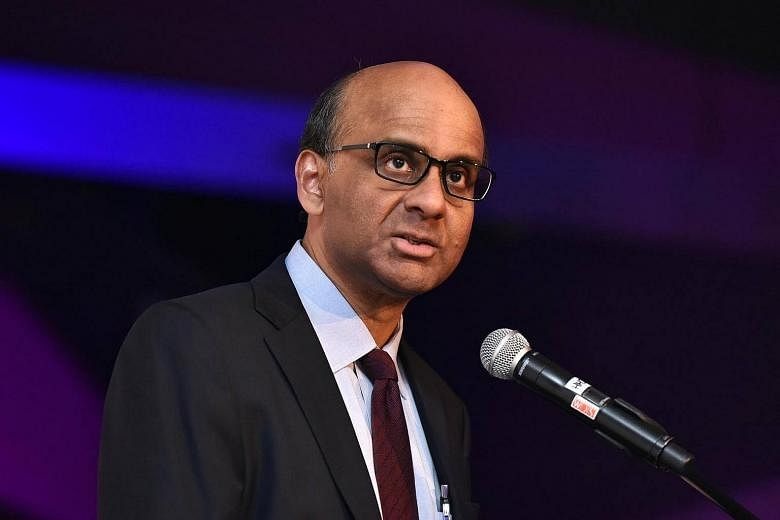Asia's huge demand for infrastructure presents a wealth of opportunities for private sector companies that partner with governments across the region, an investment summit heard yesterday.
As well as helping meet some of that demand, such private-public partnerships ensure that the appetite for returns and public needs are satisfied.
The strategy was outlined yesterday at the World Bank-Singapore Infrastructure Finance Summit by Deputy Prime Minister Tharman Shanmugaratnam and Indonesian Finance Minister Sri Mulyani Indrawati.
Mr Tharman, who is also Coordinating Minister for Economic and Social Policies, told event participants at the Westin Hotel that while there was no lack of capital, "the challenge is to work out partnerships between the public and private sectors".
Both ministers acknowledged that one risk that looms large in the minds of private sector companies is the cost overruns in such projects. Costs for large infrastructure developments typically overrun by 20 to 45 per cent on average, said Mr Tharman. But he said that "this is also why there is some advantage in public-private partnerships, with the private sector being concerned about sustainable returns and the public sector prioritising projects based on a rigorous assessment of needs".
Mr Tharman also warned that with low interest rates globally, "white elephant projects" must be avoided. "We have to take off our macroeconomic hats and put on our microeconomic hats, and assess every project for its payoffs, economic and social."
Ms Sri Mulyani made a strong pitch to private investors in her speech at the one-day summit.
She emphasised that Indonesia's investment in infrastructure has accelerated under President Joko Widodo's administration, noting that this year, the budget allocation has increased 78 per cent from last year. But with taxpayers providing just 41 per cent of Indonesia's infrastructure financing needs, the country is "inviting and mobilising other institutions, including state-owned enterprises and most importantly, the private sector", she said.
Ms Sri Mulyani, who was formerly managing director at the World Bank, said that Indonesia "has made great strides" in creating the right environment for public-private partnerships in the past few years.
Indonesia has awarded eight contracts this year, including the central Java power plant, and the western and central package of Palapa Ring broadband projects, which are both public-private partnerships. The country's regulatory frameworks for these entities were well-received by investors, she said.
The Indonesian government had embarked on several initiatives to support the private sector, including improving the coordination of government agencies and providing availability payments for private partners to ensure that projects are bankable without imposing constraints on user affordability, Ms Sri Mulyani said.
Availability payments would help to ease concerns for toll road project investors.
The government is also discussing establishing a land bank institution to acquire land first, as the private sector has often complained about the ability to buy land and unpredictability of land prices, she said.


